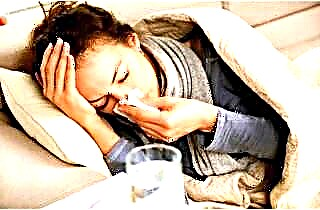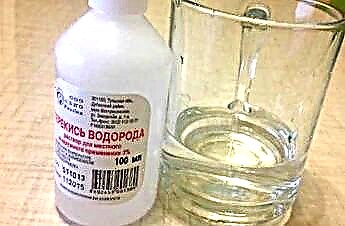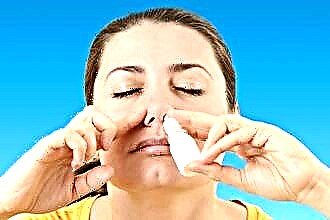Coughing is not always a bad thing. The cough reflex primarily performs a protective function, pushing out foreign objects from the larynx, expanding its lumen during bronchial spasm, helping to free the bronchi and lungs from fluid and mucus accumulations. It also signals that an infection has entered the body, especially if there is a strong cough and high fever at the same time.
Main reasons
 The high temperature also protects the body, creating unfavorable conditions for the reproduction and development of pathogenic microorganisms. Therefore, it is one of the first signs of viral or infectious diseases. The temperature also rises in the presence of inflammatory processes in the body, and the more active they are, the higher the thermometer readings.
The high temperature also protects the body, creating unfavorable conditions for the reproduction and development of pathogenic microorganisms. Therefore, it is one of the first signs of viral or infectious diseases. The temperature also rises in the presence of inflammatory processes in the body, and the more active they are, the higher the thermometer readings.
With a common cold, the temperature is 38 OC is quite rare, usually it is kept in the range of 37.2-37.7. But the presence of pathogenic microbes forces the body to activate all the defenses, and in severe cases, the body temperature can reach the level of 41-42, which is life-threatening.OC, when rapid dehydration and the process of protein denaturation begins.
Most often, a severe cough with fever in an adult occurs when:
- severe exacerbation or severe attack of bronchial asthma;
- acute upper respiratory tract disease: pharyngitis or laryngitis;
- myocardial infarction or acute cardiovascular failure;
- serious infectious diseases: diphtheria, scarlet fever, false croup, etc.;
- acute or purulent bronchitis;
- exacerbation of chronic diseases of the sinuses: sinusitis, sinusitis, frontal sinusitis;
- dangerous lung diseases: pneumonia, pleurisy, abscess;
- purulent sore throat or exacerbation of chronic tonsillitis;
- lack of treatment and the development of complications with acute respiratory infections or acute respiratory viral infections.
You are unlikely to be able to diagnose quickly and correctly on your own, and with improper home treatment, you can only start the disease and then you will have to use already potent drugs.
Therefore, the best thing to do if you have a severe cough and high fever is to see your doctor for advice.
Dangerous symptoms
Rarely does anyone go to the doctor right away, even if the temperature is over 38OC. Usually, at the initial stage, the majority tries to cope with the problem with the help of alternative methods of treatment. It is great if this happens within 2-3 days from the onset of the disease.
Antiviral drugs can be an additional emergency aid during this period. They activate the body's immune system and create unfavorable conditions for the reproduction of viruses, without destroying the beneficial microflora that lives on the mucous membranes. But it makes sense to drink such drugs only for the first two or three days. Then they are already useless.
You should immediately consult a doctor if, in addition to coughing and fever, the following symptoms are present:
 persistent severe coryza with yellow, green, or orange discharge;
persistent severe coryza with yellow, green, or orange discharge;- nasal congestion, inability to breathe normally;
- a feeling of fullness in the maxillary sinuses or in the front of the forehead;
- severe headache, dizziness, general weakness;
- aching muscle and / or joint pain, increased fatigue;
- pronounced swelling of the face in the forehead and cheeks;
- the presence of blood in coughing up sputum;
- the cough is moist, gurgling, but without active sputum discharge;
- shortness of breath even with light exertion or after a coughing fit;
- severe chest pain;
- wheezing or whistling is clearly audible when exhaling;
- the cough is paroxysmal;
- suffocation occurs during or after a coughing fit.
With obvious signs of oxygen starvation or body temperature above 39OWith, which cannot be brought down at home within a few hours, it makes sense to call an ambulance. The situation can be so serious that immediate hospitalization is required.
What to do with the temperature
Oddly enough, the temperature usually rises in the late afternoon, when it is difficult to make a visit to the doctor. If the general condition is not too severe, and the thermometer reading is not higher than 39.5OC, then you can treat yourself at home. The main thing is to understand what can and cannot be done at high temperatures.
- Warm drink. Must be consumed in large quantities. This will help to avoid dehydration, which develops very quickly at high temperatures, and moisturizes the laryngeal mucosa, irritated from a strong cough. Best of all, it will be chamomile, raspberry or linden tea with the addition of a small amount of honey and lemon wedges.
 Fresh air. It is imperative to ventilate the room in which the patient is located. This will provide him with an additional flow of oxygen, facilitate breathing and reduce the concentration of pathogens in the air. In the cold season, a person should be covered with a warm blanket and provided with a place away from an open window and drafts.
Fresh air. It is imperative to ventilate the room in which the patient is located. This will provide him with an additional flow of oxygen, facilitate breathing and reduce the concentration of pathogens in the air. In the cold season, a person should be covered with a warm blanket and provided with a place away from an open window and drafts.- Wet cleaning. You should not start a grandiose cleaning, but it is simply necessary to wipe dust from all smooth surfaces with a damp cloth. This will humidify the air and eliminate one of the most common allergens. During the operation of the heaters, an open container with clean water should be placed near them to maintain air humidity.
- Aroma lamps. In the absence of allergies, the use of essential oils will help to make breathing easier and to stop the coughing attack even faster. The simplest and most popular way for this is an aroma lamp. But it should be placed closer than 1.5-2 meters from the patient's bed. A few drops of cedar, eucalyptus, thuja, pine or tea tree oil will have an anti-inflammatory effect on mucous membranes, while purifying the air in the room from pathogenic microbes.
- Antipyretic drugs. Taken at temperatures above 38.5OC. It is better if these are combined agents with an anti-inflammatory effect: "Ibuprofen", "Coldrex", "Fervex" and others. Regular aspirin knocks down the temperature well, but its use is categorically contraindicated in cases of bleeding disorders or suspected pulmonary bleeding. As soon as the temperature stabilizes, antipyretics should be withdrawn.
Now remember what you should never do at high temperatures: take a bath, dress warmly, cover yourself with several blankets, soar your feet, put on mustard plasters or compresses, drink hot drinks or coffee, take alcohol, eat heavy foods.
It is generally better to refuse food for this period. It is much healthier to drink warm milk with honey and ghee, which warms the throat, has a coughing effect and, in addition, neutralizes toxins.
Safe self-medication
If by the morning the condition has stabilized, but a strong cough remains and the temperature is up to 38.5OC, then you can try home remedies. Continuing to constantly consume warm drink, we connect in parallel other methods of treatment:
 Antiviral drugs: "Interferon", "Anaferon", "Amizon", etc. They are not antibiotics, practically have no contraindications and should be in every home medicine cabinet. This will help the body to deal with the virus faster. Before using them, be sure to read the instructions and do not exceed the recommended dosages.
Antiviral drugs: "Interferon", "Anaferon", "Amizon", etc. They are not antibiotics, practically have no contraindications and should be in every home medicine cabinet. This will help the body to deal with the virus faster. Before using them, be sure to read the instructions and do not exceed the recommended dosages.- Gargling.It also needs to be done often - it flushes microbes from the throat and oral cavity, making it easier for the immune system, moisturizes the mucous membranes, relieves irritation and inflammation. For rinsing, a solution of sea salt (or ordinary with iodine), furacilin, chlorophyllipt, soda solution or decoctions of medicinal herbs: chamomile, calendula, eucalyptus, sage, St. John's wort, elecampane are suitable. This should be done every two hours and always after meals.
- Oral cavity treatment. After rinsing, it is useful to treat the throat with Lugol's solution, which is sold in any pharmacy. It contains iodine, glycerin and water. Glycerin is an excellent moisturizer that softens mucous membranes and relieves sore throat. And iodine kills pathogenic microorganisms and heals wounds and microcracks that could appear from a strong cough.
Herbion, Doctor Mom, Plantain syrup or proven folk remedies will help to cope with a strong cough: onion syrup, tea rose jam, fig milk, aloe with honey, burnt sugar with ginger and lemon juice. They must be taken in a teaspoon 4-5 times a day.
But if the situation does not improve on 3-4 days after the start of active home treatment, a severe cough does not go away, and the temperature does not drop to 37.2-37.5OC, or there is a constant increase in the abolition of antipyretics - stop further experiments with health and go for a consultation with a doctor. Otherwise, there are serious chances of complications and subsequent hospitalization.

 persistent severe coryza with yellow, green, or orange discharge;
persistent severe coryza with yellow, green, or orange discharge; Fresh air. It is imperative to ventilate the room in which the patient is located. This will provide him with an additional flow of oxygen, facilitate breathing and reduce the concentration of pathogens in the air. In the cold season, a person should be covered with a warm blanket and provided with a place away from an open window and drafts.
Fresh air. It is imperative to ventilate the room in which the patient is located. This will provide him with an additional flow of oxygen, facilitate breathing and reduce the concentration of pathogens in the air. In the cold season, a person should be covered with a warm blanket and provided with a place away from an open window and drafts. Antiviral drugs: "Interferon", "Anaferon", "Amizon", etc. They are not antibiotics, practically have no contraindications and should be in every home medicine cabinet. This will help the body to deal with the virus faster. Before using them, be sure to read the instructions and do not exceed the recommended dosages.
Antiviral drugs: "Interferon", "Anaferon", "Amizon", etc. They are not antibiotics, practically have no contraindications and should be in every home medicine cabinet. This will help the body to deal with the virus faster. Before using them, be sure to read the instructions and do not exceed the recommended dosages.

